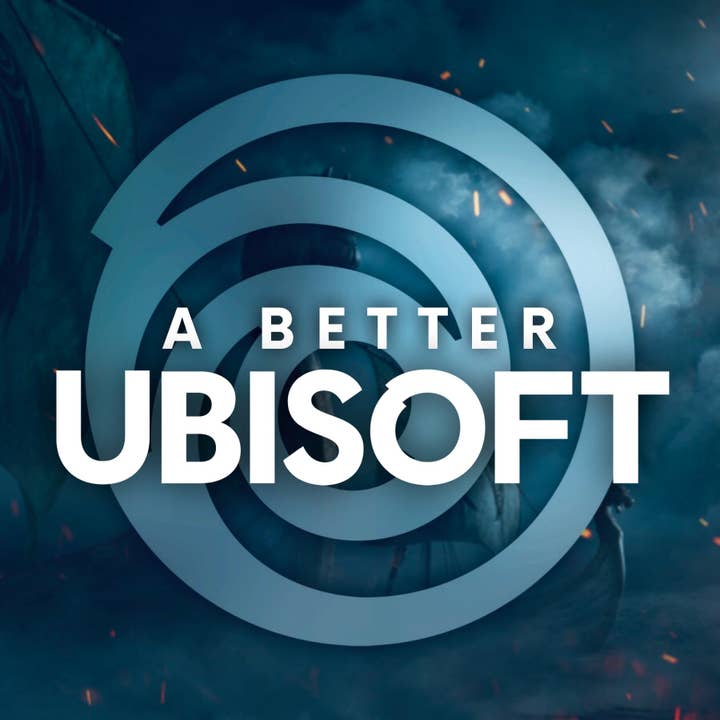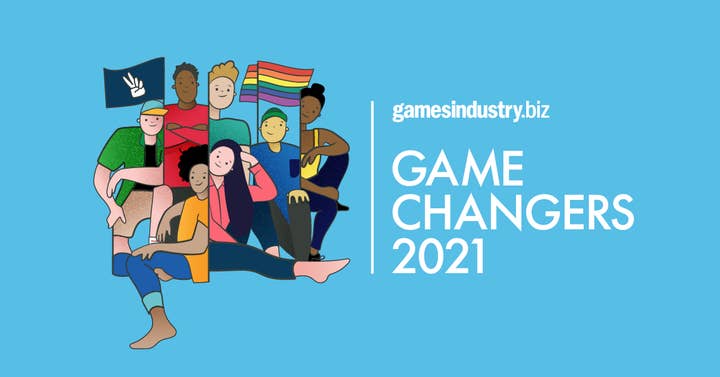Game Changers 2021: Part Eight
Today's celebrants include a champion for the South African games scene, a platform for women working in games, and two groups campaigning for an end to abuse in the industry
The GamesIndustry.biz Game Changers is an initiative that profiles individuals and organisations making progress in vital areas like diversity, accessibility, charity, mental health, progressive politics, lifting emerging markets, uniting communities, and more -- people whose stories can show us how this industry can be that better and more inclusive place.
Below is the latest wave of 2021's Game Changers, with more to follow every working day, with a full wrap-up coming later this month. Find previous articles and more about this project here.
Nick Hall

Nick Hall is the chair of Interactive Entertainment South Africa (ISEA), the industry body that supports and oversees games development in the region.
He's also a founding member of Make Games South Africa, the largest online game development community in the country, and co-founder of Africa Games Week, an event that supports the games industry across the region.
In 2012, following the collapse of two of South Africa's biggest gaming communities, Hall suggested setting up a non-profit to "own" the community, and prevent it from happening again. This became Make Games South Africa, which Hall chaired for two years.
The ISEA trade body came together in 2015, also under Hall's guidance. For the last six years it has lobbied to secure funding to take South African studios to international events.
"Developers often complained about the lack of local funding opportunities and the huge costs involved in getting to major international events like GDC or Gamescom, which were critical to meeting publishers and other developers," Hall says.
In 2018, the funding program was suspended, so Hall's efforts pivoted from attempting to send companies abroad, to bringing the opportunities to Africa. From this, Africa Games Week was born and has been running every December since.
"All of these efforts have ultimately been in pursuit of one goal: growing the South Africa game development industry"
Nick Hall
"All of these efforts have ultimately been in pursuit of one goal: growing and developing the South Africa game development industry so that it would be the centre for game development on the continent," Hall tells us.
"I decided that if we couldn't get our developers to these international shows, then we should try to get the international community to come to us."
In terms of support, Hall's advice is pretty straightforward: acknowledge that Africa has a thriving games scene, and pay attention to it.
"At a regional level I think the biggest thing the international community can do is recognise that game development is happening on the continent," he says. "Too often major players and stakeholders completely ignore the continent in terms of their internal strategies or policies, this makes the business of running a game development studios much harder than it should be."
"Apart from this all I would ask is that interest in what is going on in the continent continues to grow and the industry be proactive in ensuring that South Africa (and Africa as a whole) is included in their activities."
Lauren Kaye

Lauren Kaye is the host and creator of She Plays Games, a podcast dedicated to spotlighting the work of women in the games industry. The podcast also has an adjacent community where marginalised people can meet and chat.
Kaye started the podcast in 2019, and has made around 60 episodes so far.
"I started this podcast when I was at a crossroads in my life," she says. "I am a believer of everything happening for a reason, but I do wonder if my life path would've been different had I been exposed to more women in tech roles in the games industry at a young age."
Kaye tells us that lack of exposure to women is not something she wants to befall future generations of young girls, and so the idea behind She Plays Games is to highlight those voices and make sure they are visible.
At the moment, Kaye is the sole organiser of the podcast and community, and handles all of the workload alone -- which includes editing the videos, managing social media accounts and other admin. That said, the project receives a lot of love and support from other people in the industry, and Kaye is hopeful that it will grow.
"Hopefully one day I'll have enough to create roles for other people to join me so I can focus on my strongest suit: talking with people," she says.
"I have had women on the show who have been in the industry for decades who never had been on a podcast before, which is just baffling"
Lauren Kaye, She Plays Games
Kaye is also a strong advocate for programs that support marginalised communities in games, such as Limit Break and Code Coven. She works tirelessly to maintain a space that is safe and welcoming for women from all walks of the gaming space, and hopes that She Plays Games will continue to bring in more members over time, both industry professionals that are already paving the way, and those that are aspiring to get into games.
"Getting the word out about the podcast, posting reviews, and sharing it around is extremely helpful," Kay adds. "It's only really when I go to in-person events that I find so many people who know about my podcast and so doing these little virtual kudos lets me know that you're still around and keeps me going."
Kaye also tells us that encouraging and empowering women to open up about their individual journeys is a huge help to the podcast.
"A lot of the time there's women who don't feel worthy or eligible to speak with me and that's so not the case," she adds. "I also have had women on the show who have been in the industry for decades who never had been on a podcast before, which is just baffling."
In addition to the podcast, She Plays Games also compiles an annual list of 100 of the games industry's most inspiring women. Kaye started the #SPG100 in 2020, to further spotlight individuals that are making a positive impact and pushing boundaries.
ABK Workers Alliance
When the California Department of Fair Employment and Housing filed suit against Activision Blizzard in July alleging gender discrimination and sexual harassment at the publisher, it was one of the biggest stories of the year. But the reaction of Activision Blizzard employees could be laying the groundwork for one of the biggest gaming industry stories of the decade, a potentially pivotal moment in the history of the industry and how it treats its employees.
"It's important that we make games that are not only impactful, but ethical to consume"
Aubrey Ryan, ABK Workers Alliance
More than 1,000 current and former Activision Blizzard employees denounced the publisher's defiant response to the lawsuit. They walked out. They formed the ABK Workers Alliance and issued demands, some of which -- like an end to mandatory arbitration clauses in employee contracts -- the publisher has already partly committed to. Activision Blizzard also gave contractors a better salary and paid time off after the ABK Workers Alliance took issue with the treatment of their colleagues.
The ABK Workers Alliance has delivered tangible victories for Activision Blizzard employees, and it is now building a strike fund and making a push for unionization that, if successful, would not only give the employees that much more leverage to improve their standing, but could have immense ramifications for labor rights throughout the industry.
Blizzard QA tester and ABK Workers Alliance representative Aubrey Ryan tells GamesIndustry.biz that seeing colleagues speak up is what convinced them to add their voice.
"As a relatively new person on my team, I was incredibly inspired by the fearlessness of Jessica Gonzalez, Valentine Powell, and other folks who made such a visible and poignant stand against this abuse," Ryan says. "It's important that we make games that are not only impactful, but ethical to consume."

Given the nature of the group, it's no surprise its many members -- 1,300 people in its Discord, for example -- turn to each other for support. But they've also received assistance from outside the organization.
"It takes a village, and there is a huge outpouring of support from our peers," Ryan says. "Volunteers collaborate on social media statements, infographics, and are constantly supporting one another, which is incredible."
Raven Software QA tester Onah Rongstad says that kind of mutual support is nothing new for ABK Workers Alliance members.
"We cannot make change without first identifying and owning the issues that we see (and often ignore)"Aubrey Ryan, ABK Workers Alliance
"Nearly everything done in Raven QA is done as a team," Rongstad says. "I have a co-point person for my UI responsibilities, and we work together to coordinate test preparation and task running. I also work within a strike team, and when I'm busy with other work, I can count on my colleagues to complete a task I prepared. My coworkers across strike teams are always dependable and helpful when I need additional knowledge about features with which I am less familiar."
As for how the rest of the industry can support the ABK Workers Alliance in its efforts, Ryan says it's important to keep speaking up.
"Be vocal about the issues in our industry," they say. "We cannot make change without first identifying and owning the issues that we see (and often ignore) -- and of course, share our strike fund."
A Better Ubisoft
On July 28, 2021 -- the same day as the first Activision Blizzard walkout -- a group of current and former Ubisoft published an open letter expressing support for their Californian peers and making some demands of their own.

It was signed by around 500 people from 32 Ubisoft studios, and within days this reached over 1,000.
Sympathising with the ABK Workers Alliance's cause, this group -- A Better Ubisoft -- sought to remind the industry of similar abuse allegations levelled at the company in 2020, and its dissatisfying response.
"The thing that shocked the public and many of our colleagues and former colleagues most about these experiences was just how far up the ladder the perpetrators of these abuses were," the group tells us, referring to last year's reports. "Some of the longest-serving and most trusted members of Ubisoft HQ [were] exposed as abusers.
"We aim to hold management to account and demand a seat at the table when it comes to decisions about reforming the workplace culture at Ubisoft, the policies that protect employees and the panels that assess accusations of abuse or harassment, sexual or otherwise."
A Better Ubisoft has also set its sights on industry-wide change, calling for all companies to agree on ground rules and process on how to handle abusers within their ranks. Crucially, the group says that union representatives and employees in non-management roles should be part of this process.
While the ABK Workers Alliance's efforts have resulted in changes at their employer, the same cannot be said at Ubisoft. A Better Ubisoft has called on the public for more support, not only by encouraging the use of the hashtag #EndAbuseInGaming but through a petition designed to prompt more of a response from Ubisoft's leadership. It launched 100 days after the open letter was published, as the group says its demands had not been met despite the original allegations emerging over a year ago.
"It can be terrifying, but by speaking up we encourage others to speak about their experiences"
A Better Ubisoft
"We'd sat through a year of empty promises and platitudes telling us either that change was coming or that things were already so much better. If you asked anyone who signed the letter, they would, of course, agree that this was not the case. But we must also remember that for every signature on the open letter, there will have been a handful or more employees who were too afraid to sign the letter because of the toxic workplace culture and lack of trust in management.
"We wanted to have our demands met as set out in the open letter and our follow-up response. At the time of writing, management has admitted that they made mistakes in the past year. Management also refuses to revisit the cases where they made mistakes. They refuse to give us a seat at the table, and so far they have done very little beyond making more promises to restore our faith in them."
Earlier this month, the group announced that more than 13,000 people have signed the petition, and they remain grateful for all the support they have seen across the industry.
"We'd like to thank our friends in the industry, such as the ABK Workers Alliance, for their support. We'd like to thank every game worker, Ubisoft fan, and gamer that has ever shared our posts or signed our petition. And every journalist that has stood with us and our colleagues in sharing these stories."
In terms of further supporting their cause, A Better Ubisoft encourages any victim of or witness to harassment and abuse within the industry to speak up.
"It can be terrifying, but by speaking up we encourage others to speak about their experiences," they explain. "It was only through brave voices speaking up that we learned about the systemic cultures of abuse at Ubisoft and ABK.
"If you wish to start your own movement within your company, we're more than happy to give advice. We will stand in solidarity with any group of game workers looking to make the gaming industry better.
"To everyone else: keep the story alive. Happy game workers in a positive workplace environment will inevitably create better games. When you buy a game, remember the sacrifices that went into making it. Don't accept that those sacrifices are normal, speak to your friends and colleagues about them."
Check back on Monday for more profiles of our 2021 Game Changers. The profiles will all be compiled on this page until our wrap up article later this month.

